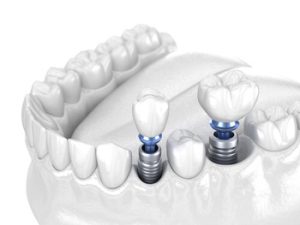Dental implants have revolutionised dentistry, offering a permanent solution for replacing missing teeth that look, feel, and function like natural teeth. As the demand for dental implants grows, patients worldwide consider various options, including dental tourism in countries like Vietnam. While the allure of lower costs and an exotic getaway is strong, it is essential to weigh these factors against Australian dental clinics’ comprehensive care and long-term benefits. This article will explore the advantages of getting dental implants in Australia, highlighting why it is a superior choice to Vietnam.
The Appeal of Dental Implants: A Modern Solution for Missing Teeth
Dental implants are widely recognised for their ability to restore the aesthetics and functionality of missing teeth. Dental implants offer a stable, long-lasting solution, unlike dentures, which can be uncomfortable and require frequent adjustments. The implant acts as a root for the artificial tooth, providing a secure foundation that mimics the feel and function of natural teeth. This innovative approach has made dental implants popular for tooth replacement, offering benefits beyond mere cosmetics.
Why do People consider Dental Implants in Vietnam?

The Risks of Getting Dental Treatments Abroad: Understanding Dental Tourism
Dental tourism involves travelling to another country to receive dental treatments, often cheaper than in one’s home country. While the prospect of saving money and enjoying a vacation may seem appealing, it is essential to understand the potential risks and challenges associated with dental tourism.
Inconsistent Quality of Care: What You Need to Know
One of the primary risks of dental tourism is the inconsistent quality of care. While some countries offer high-quality dental treatments, others may have varying standards. Factors that contribute to inconsistent care include:
- Regulatory Standards: Different countries have different regulatory standards for dental practitioners, which can affect the quality of care.
- Training and Qualifications: The level of training and qualifications required for dentists may vary, leading to discrepancies in expertise and skills.
- Hygiene and Sterilisation: Standards for hygiene and sterilisation may not be as stringent as those in your home country, increasing the risk of infections and complications.
Navigating Communication Barriers in Dental Tourism
Effective communication is crucial for understanding dental treatment plans, risks, and aftercare instructions. Language barriers can pose significant challenges when receiving dental treatments abroad. Misunderstandings and miscommunications can lead to:
- Incorrect treatment or procedures.
- Incomplete understanding of post-treatment care.
- Difficulty in expressing concerns or asking questions.
Follow-Up Care and Complications: The Challenges of Dental Tourism
Dental treatments often require follow-up care to ensure successful outcomes and address any complications. When receiving dental treatments abroad, follow-up care can be challenging due to:
- Distance: Travelling back to the country where the treatment was performed can be costly and time-consuming.
- Continuity of Care: Different dentists may have varying approaches to treatment, leading to potential inconsistencies in care.
- Complications: If complications arise after returning home, finding a local dentist willing to address issues related to treatments performed abroad can be difficult.
Patients who receive multiple dental implants abroad face additional complexities and considerations, as extensive treatment plans require careful planning and experienced handling to ensure successful outcomes.
Legal and Ethical Concerns: Protection of Your Rights Abroad
Legal and ethical standards for dental care vary by country. This can impact your ability to seek recourse in case of malpractice or unsatisfactory treatment. Key concerns include:
- Patient Rights: Your rights as a patient may not be protected to the same extent as in your home country.
- Legal Recourse: Pursuing legal action for malpractice or negligence in a foreign country can be complicated and expensive.
- Ethical Practices: Standards for ethical practices, including informed consent and transparency, may differ.
Hidden Costs and Additional Expenses: What to Watch Out For
While the initial cost of dental treatments abroad may be lower, hidden costs and additional expenses can add up. These may include:
- Travel Expenses: Flights, accommodation, and transportation can significantly increase the overall cost of treatment.
- Time Off Work: Taking time off work for travel and recovery can result in lost income.
- Unforeseen Complications: Complications requiring additional treatments or procedures can lead to unexpected expenses.
Why Australia is the Prime Destination for Dental Implants
Choosing where to get dental implants is a critical decision that can impact your oral health and overall well-being for years. Australia stands out as a premier destination for dental implants, offering a unique combination of advanced care, professional expertise, and robust patient support. Here’s why Australia is the best place to get your dental implants.
High Standards of Care and Hygiene: What Sets Australia Apart
- Regulated by the Australian Dental Association (ADA): Australian dental clinics adhere to stringent standards set by the ADA, ensuring high-quality care.
- Strict Hygiene Protocols: Clinics follow rigorous sterilisation and hygiene protocols, minimising the risk of infections and complications.
- Regular Inspections: Dental offices are inspected to ensure compliance with national health and safety regulations.
Highly Qualified Practitioners: Expertise You Can Trust
- Extensive Training: Australian dentists undergo comprehensive training, including years of education and practical experience.
- Continuous Education: Dentists are required to participate in continuous professional development to stay updated with the latest advancements in dental technology and procedures.
- Expertise in Implant Dentistry: Many Australian dentists have extensive experience in implant dentistry, providing high expertise and precision in implant procedures.
State-of-the-Art Technology and Materials: Advanced Care for Dental Implants
- Advanced Diagnostic Tools: Clinics use cutting-edge diagnostic tools, such as 3D imaging and digital X-rays, to accurately plan implant procedures.
- High-Quality Materials: The use of premium materials, such as titanium dental implants, ensures durability and biocompatibility.
- Innovative Techniques: Australian dentists employ the latest techniques and equipment, enhancing the success rate of dental implant surgeries.
Comprehensive Pre-Operative Assessment: Personalised Care for Optimal Outcomes
- Detailed Medical History Review: A thorough review of your medical history ensures that all potential risks are identified and managed.
- Comprehensive Oral Examination: Dentists conduct detailed examinations, including bone density assessments, to determine implant suitability.
- Personalised Treatment Plans: Treatment plans are customised based on individual needs and conditions, ensuring optimal outcomes.
Safety and Risk Management: Ensuring Your Well-Being
Stringent Safety Protocols: Strict protocols are in place to manage and mitigate risks associated with surgical or invasive procedures.
Informed Consent: Patients receive detailed information about the procedure, potential risks, and expected outcomes, ensuring informed consent.
Emergency Preparedness: Clinics are well-prepared to handle any emergencies or complications that may arise during or after the procedure.
Any invasive procedure carries risks, so it is important to seek informed decisions and consultations with qualified health practitioners.
Long-Term Follow-Up and Care: Ongoing Support for Your Dental Health
- Regular Check-Ups: Post-procedure follow-up appointments ensure that the implants are healing correctly and functioning as intended.
- Maintenance Guidance: Dentists provide guidance on maintaining oral hygiene and caring for implants to ensure their longevity.
- Ongoing Support: Patients have access to continuous support and care, addressing any issues or concerns that may arise over time.
Financial Flexibility: Making Dental Implants Affordable
- Insurance Coverage: Many dental insurance plans in Australia cover part or all of the costs associated with dental implants.
- Financing Options: Clinics offer various financing options and payment plans to make the cost of dental implants more manageable.
- Transparent Pricing: Clear and upfront pricing ensures that patients are fully aware of the costs involved without hidden fees.
Legal and Ethical Assurance: High Standards of Patient Care
- Patient Rights Protection: Australian regulations ensure that patient rights are protected, providing legal recourse in case of malpractice or unsatisfactory treatment.
- Ethical Standards: High ethical standards ensure transparency, informed consent, and patient-centred care.
- Accredited Clinics: Choosing an accredited clinic guarantees adherence to the highest standards of dental practice.
Convenience and Accessibility: Local Support and Easy Communication
- Local Availability: Having treatment in Australia means easy access to your dentist for consultations, follow-ups, and any necessary adjustments.
- No Language Barriers: Communication is straightforward, ensuring that patients fully understand their treatment plans and care instructions.
- Support Network: Being close to home allows you to have the support of family and friends during the recovery process.
High Success Rates and Patient Satisfaction: Proven Excellence in Dental Implants
- Proven Track Record: Australian dental clinics have a high success rate for dental implant procedures, reflecting their expertise and quality of care.
- Patient Testimonials: Positive reviews and testimonials from satisfied patients underscore the reliability and excellence of Australian dental services.
- Focus on Long-Term Health: The emphasis on long-term oral health and maintenance ensures that dental implants remain a successful and permanent solution.
The Financial Temptation: Initial Dental Implant Costs Comparison
The initial dental implant cost in Vietnam is significantly lower than in Australia, typically starting at around AUD 1,500, while in Australia, prices generally begin at approximately AUD 3,000. While the lower cost in Vietnam is tempting, it is essential to consider the dental practitioners’ comprehensive care, quality of materials, and expertise. The significant price difference can often be attributed to varying regulatory standards, the quality of materials used, and the level of training among dental practitioners. These factors can have significant implications for the success and longevity of your dental implants.
Introduction to Dental Implant Procedure: What to Expect
Dental implant surgery has become a highly sought-after solution for replacing missing teeth, offering durability, stability, and a natural appearance, but it is important to be aware that it is a surgical or invasive procedure with associated risks. Gaining a clear understanding of the dental implant procedure can help ease any concerns and prepare you for the journey ahead. This section outlines each step of the dental implant process, ensuring you know what to expect from start to finish.
Initial Consultation: The Foundation of Success
The dental implant journey begins with an initial consultation with your dentist. During this visit, the dentist will:
- Review your medical history to ensure no underlying conditions could affect the procedure.
- Conduct a comprehensive oral examination to assess the health of your gums and teeth.
- Take diagnostic images, such as X-rays or 3D scans, to evaluate the bone structure and determine if bone grafting is necessary.
- Discuss your treatment goals and expectations to develop a personalised treatment plan.
Bone Grafting: Preparing for Implant Placement
If you have insufficient bone density in your jaw, a bone graft may be required to provide a stable foundation for the implant. Bone grafting entails adding bone or bone-like materials to the jawbone. The healing process for a bone graft can take several months, during which the graft material integrates with the existing bone.
Bone grafting is a crucial step in preparing for placing dental implants, ensuring a stable foundation for the implant.
Implant Placement: The Core of the Procedure
Once your jawbone is ready, the implant placement procedure begins. This involves several key steps:
- Anaesthesia: Local anaesthesia is administered to numb the area and ensure comfort during the procedure.
- Incision: The dentist makes a small incision in the gum to uncover the bone.
- Drilling: A drill is used to create a hole in the jawbone where the implant will be placed.
- Implant Insertion: The titanium dental implant is carefully inserted into the prepared hole.
- Stitching: The gum tissue is stitched back over the implant to protect it during healing.
Remembering that implant placement is a surgical or invasive procedure and understanding each step can help alleviate concerns.
When considering dental implant treatments, it’s important to weigh the cost-effectiveness and safety, especially in countries like Vietnam compared to Australia.
Osseointegration: The Healing Phase
After the implant is placed, a process called osseointegration begins. This crucial phase involves the implant merging with the jawbone, creating a firm and steady foundation for the artificial tooth. Osseointegration can last for several months, and during this time, it is essential to follow your dentist’s care instructions to ensure successful healing.
Abutment Placement: Connecting the Implant and Crown
Once osseointegration is complete, an abutment is affixed to the implant. This abutment serves as a connector between the implant and the artificial tooth. This procedure involves:
- Reopening the gum to expose the implant.
- Attaching the abutment to the implant.
- Allowing the gum to heal around the abutment typically takes a few weeks.
Crown Placement: The Final Touch
The final step in the dental implant procedure is placing the artificial tooth, or crown, onto the abutment. This process includes:
- Take impressions of your mouth to create a custom crown that resembles your natural teeth’ colour, shape, and size.
- Attaching the crown to the abutment and ensuring a comfortable and accurate fit.
- Making any necessary adjustments to the crown for optimal aesthetics and functionality.
Post-Procedure Care: Ensuring Long-Term Success

- Maintaining excellent oral hygiene practices, such as brushing and flossing daily.
- Attending regular dental check-ups to monitor the health of your implants and surrounding tissues.
- Avoiding hard or sticky foods to prevent damage to the implants or crown.
- Following your dentist’s specific care instructions to promote healing and prevent complications.
Conclusion: Making an Informed Decision
While dental tourism can offer cost savings, it is crucial to weigh the potential risks and challenges against the benefits. Ensuring quality care, effective communication, and comprehensive follow-up care are essential for successful dental treatments. By thoroughly researching and considering all factors, you can make an informed decision about prioritising your oral health and overall well-being. If you’re considering dental implants, contact Infinity Dental Care at (02) 9159 6237 for high-quality care.
Note: Any surgical or invasive procedure carries risks. Before proceeding, you should seek a second opinion from an appropriately qualified health practitioner.
References:
Cleveland Clinic. (n.d.). Dental X-rays. Retrieved from https://my.clevelandclinic.org/health/diagnostics/11199-dental-x-rays
Australian Dental Association. (n.d.). Policy statement 5.8 – Dental acts, the national law and boards. Retrieved from https://ada.org.au/policy-statement-5-8-dental-acts,-the-national-law-and-boards
Colgate. (n.d.). What is dental tourism? Retrieved from https://www.colgate.com/en-us/oral-health/threats-to-dental-health/what-is-dental-tourism
Healthline. (n.d.). Dental bone graft. Retrieved from https://www.healthline.com/health/dental-bone-graft
BodyExpert. (n.d.). Dental implant procedure. Retrieved from https://www.bodyexpert.online/en/dental-implant-procedure


